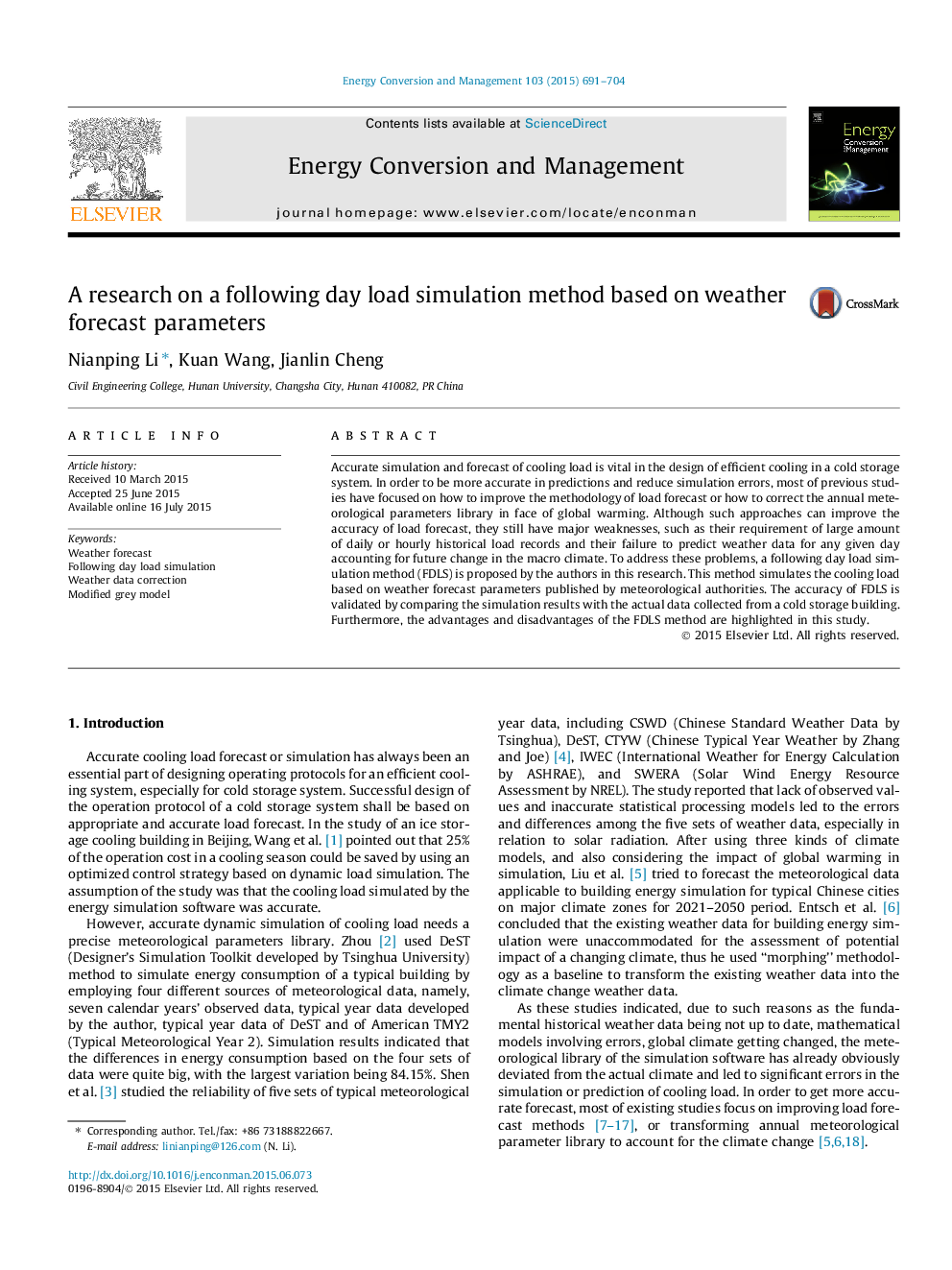| کد مقاله | کد نشریه | سال انتشار | مقاله انگلیسی | نسخه تمام متن |
|---|---|---|---|---|
| 771680 | 1462859 | 2015 | 14 صفحه PDF | دانلود رایگان |
• FDLS method is proposed using weather forecast parameters.
• Correction method for next day’s weather data is proposed base on weather forecast.
• Cooling load is simulated with original and corrected DeST weather library.
• The two kinds of simulated load are compared with measured load of the building.
• Accuracy of cooling load prediction for following day is improved with FDLS method.
Accurate simulation and forecast of cooling load is vital in the design of efficient cooling in a cold storage system. In order to be more accurate in predictions and reduce simulation errors, most of previous studies have focused on how to improve the methodology of load forecast or how to correct the annual meteorological parameters library in face of global warming. Although such approaches can improve the accuracy of load forecast, they still have major weaknesses, such as their requirement of large amount of daily or hourly historical load records and their failure to predict weather data for any given day accounting for future change in the macro climate. To address these problems, a following day load simulation method (FDLS) is proposed by the authors in this research. This method simulates the cooling load based on weather forecast parameters published by meteorological authorities. The accuracy of FDLS is validated by comparing the simulation results with the actual data collected from a cold storage building. Furthermore, the advantages and disadvantages of the FDLS method are highlighted in this study.
Journal: Energy Conversion and Management - Volume 103, October 2015, Pages 691–704
